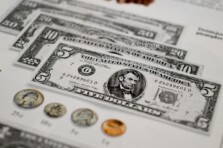When it comes to stock, there are different types that individuals can trade. While many people are familiar with traditional stocks, others may not know as much about forex trading. Forex, or foreign exchange, is the act of trading currencies between two parties.

Source: shutterstock.com
There are many different strategies and methods that can be employed. Some investors prefer to stick to stocks from companies they’re familiar with, while others are more interested in penny stocks or TB Training. Then there are those who like to trade forex. But what exactly is forex trading, and how does it differ from other types of stock trading? Let’s take a closer look.
Keep reading to learn more about how forex trading works and how it differs from other types of stock, according to experts like WB Trading.
What is Forex Trading?
In order to understand how forex trading works, it is important to first understand what forex is. Forex, also known as foreign exchange or FX, is the process of exchanging one currency for another. For example, an individual may exchange U.S. dollars for Japanese Yen. The rates at which currencies are exchanged are constantly changing and can be affected by various political and economic factors.
While forex trading does involve the exchange of currencies, it is important to note that it is not the same as currency trading. Currency trading refers to the act of speculating on the future value of a currency. For example, an investor may believe that the value of the U.S. dollar will increase in the future, and as a result, they will purchase U.S. dollars in hopes of selling them at a later date when the value has gone up.
How Does Forex Trading Work?
Forex trading occurs when two parties agree to exchange currency at an agreed-upon rate. This rate is determined by a number of factors, including the current market rate, the amount being exchanged, and the type of currency being traded. The transaction usually happens electronically and can be completed in minutes.
Once the transaction is complete, the trader will have gained exposure to the Japanese Yen and will then be able to hedge against any potential losses if the value of the U.S. dollar falls relative to the Yen. Conversely, if the value of the dollar rises relative to the Yen, the trader may lose money on the deal but will still have made a profit on the overall transaction when factoring in the initial exchange rate. It should be noted that forex trading can be a risky endeavor and should only be undertaken by experienced traders with a solid understanding of how the market works.
Forex Trading vs. Other Types of Stock
Now that you know a little more about how forex trading works let’s look at how it differs from other types of stock. One major difference is that forex trading is done on what is called the spot market, as opposed to the futures market. The spot market refers to the current prices at which currencies are being traded, while the futures market refers to prices that are set at some point in the future for delivery on a specific date.
Futures contracts are commonly used for commodities like corn or crude oil but can also be traded for currencies. Another key difference between forex trading and other types of stock is that forex trading is not centralized like other markets. Instead, it is decentralized and trades 24 hours a day through a network of banks, financial institutions, and private traders.
This means there is no one central location where all transactions occur. Instead, transactions happen directly between two parties via electronic means. Because Of this decentralized nature, forex markets tend to be much more volatile than other markets. This volatility can provide profit opportunities but also carries with it a greater risk of loss. So, before embarking on any trades, it’s important to have a solid understanding of both the risks and rewards involved.
Final Thoughts
In conclusion, forex trading is similar to other types of stock in that two parties agree to exchange the currency at an agreed-upon rate. However, there are some key differences between forex trading and other types of stock trading.
These include the fact that forex trading:
- Is done on the spot market as opposed to the futures market
- Is not centralized like other markets
- Happens directly between two parties via electronic means
- Has the potential to be much more volatile than other markets
Forex trading can provide opportunities for profit but also carries with it a greater risk of loss. So, before embarking on any trades, it’s important to have a solid understanding of both the risks and rewards involved.









